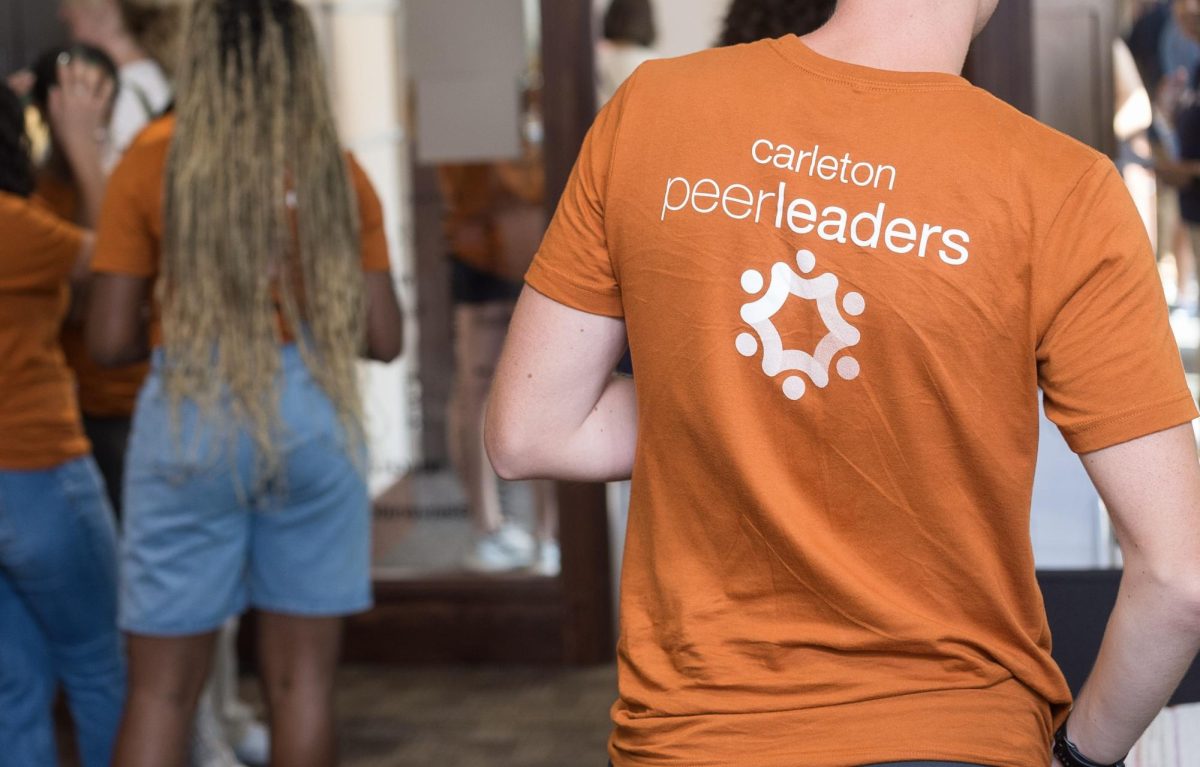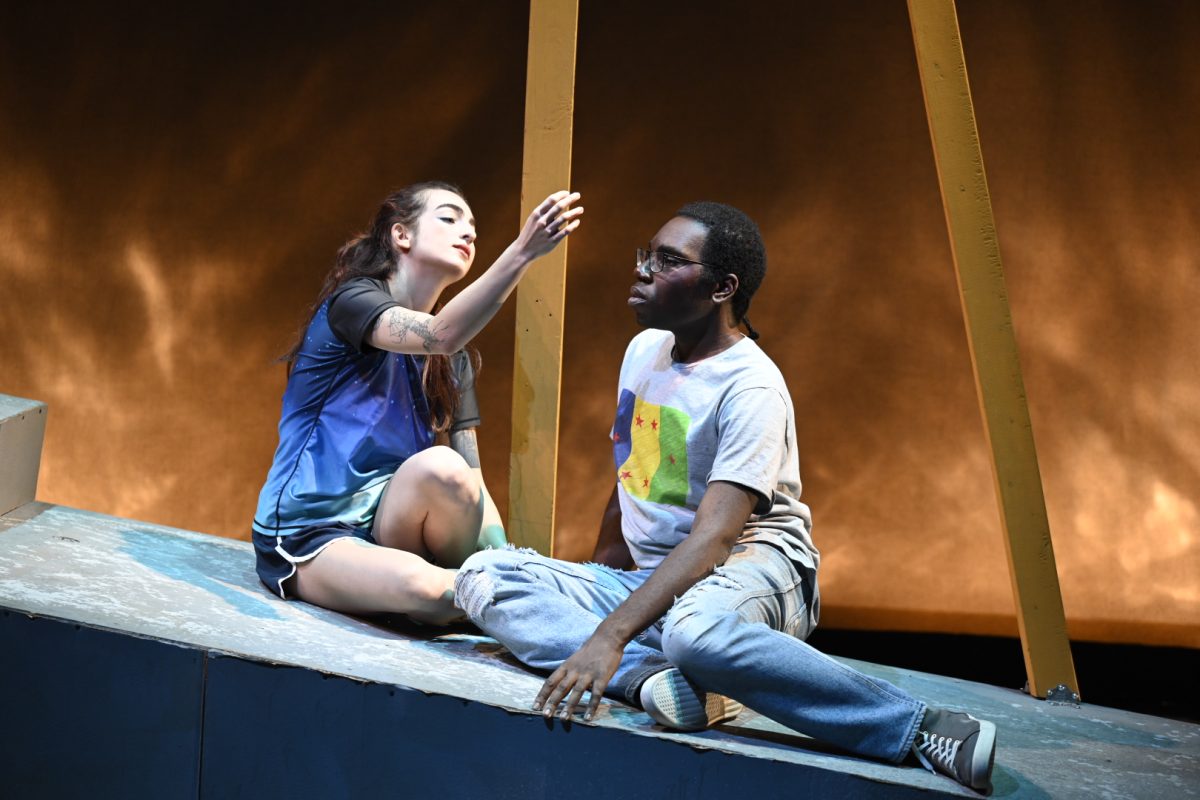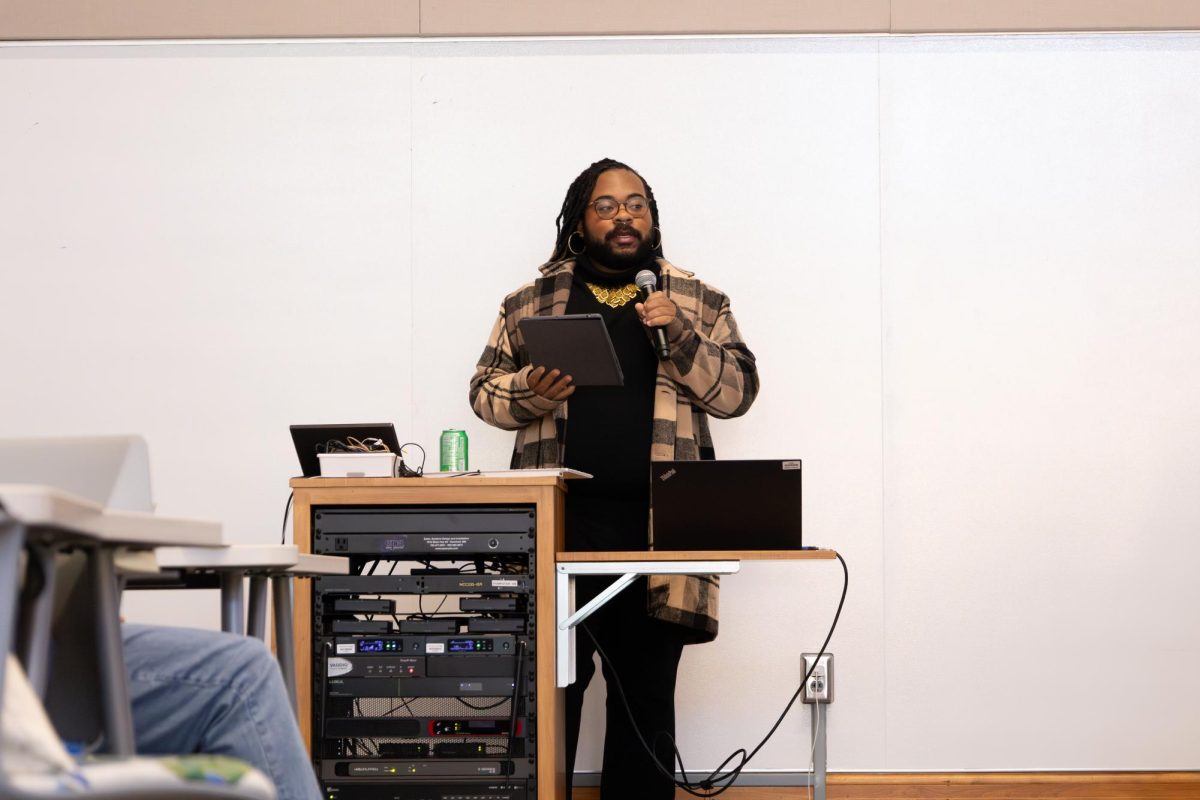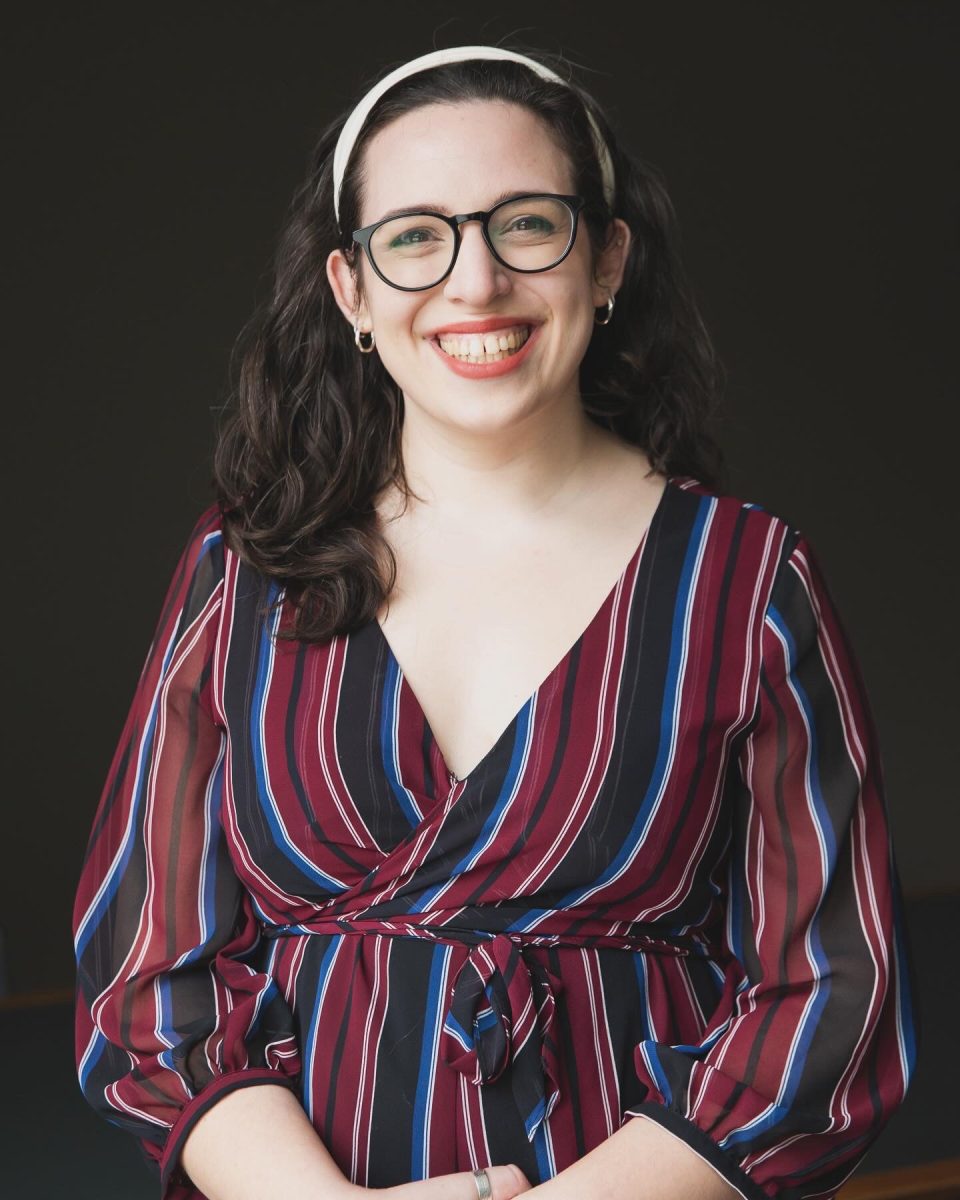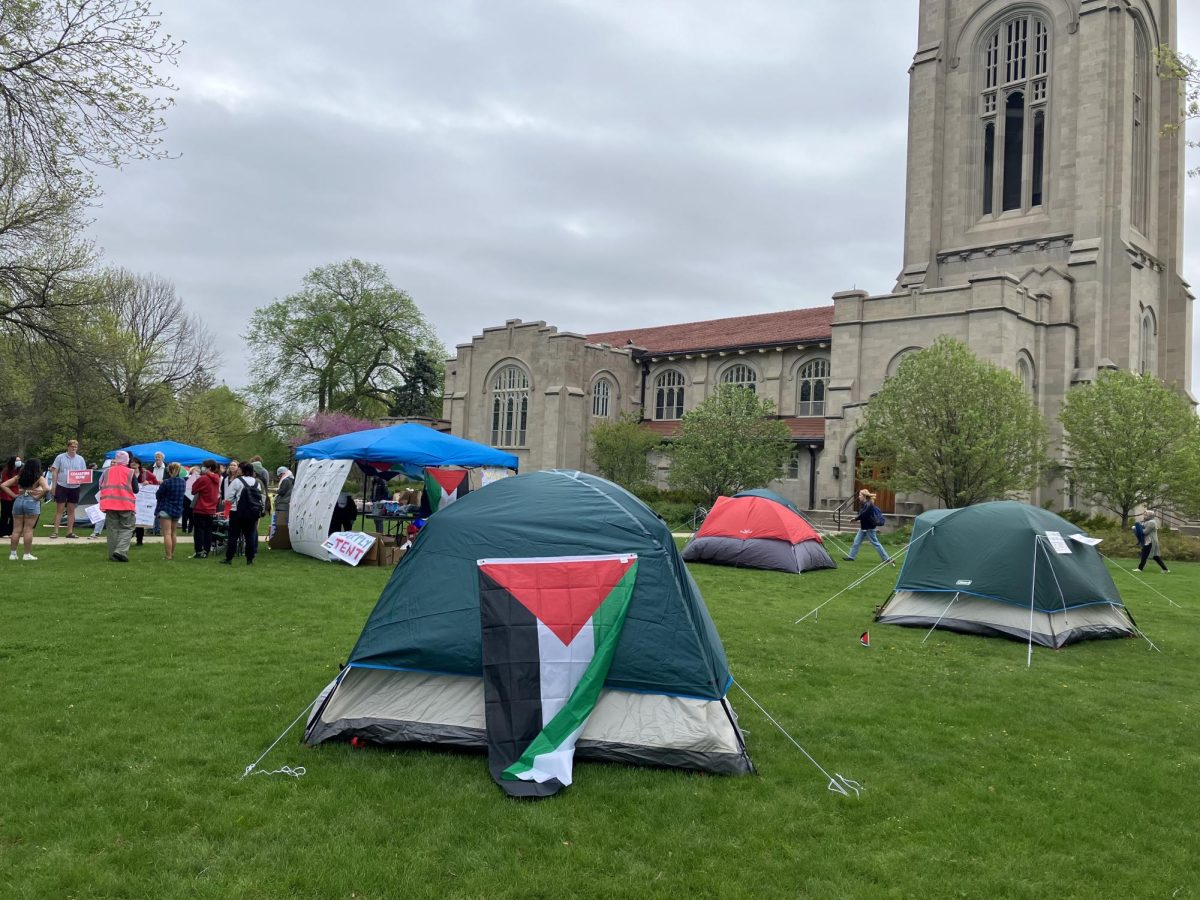On Nov. 7-8, Carleton College hosted Salvadoran best-selling author Javier Zamora for multi-day, campus-wide programming. Zamora is known for his memoir “Solito,” in which he recounts his experience crossing the U.S.-Mexican border from the perspective of his nine-year-old self. Zamora’s visit to the campus served as the pinnacle event for Intermediate Spanish students and also provided an opportunity for students to engage in timely dialogue just two days after the presidential election.
The idea of bringing Zamora to campus originated with Fernando Contreras Flamand, a professor in the Spanish department who teaches a social-justice-oriented off-campus studies program and Spanish 204.
“Spanish 204 [usually] reads a book about Spain, but I wanted to give it a twist, and I wanted to talk about my country — about Mexico — and immigration was a big issue,” Contreras said.
Contreras first learned of the author while listening to an interview with Zamora on “Latino USA” — a podcast hosted by Maria Hinojosa — during his morning commute.
“I was hooked… and I thought he was a very, very interesting person. And his story, of course, was fabulous,” Contreras said. “It got my attention right away.”
Learning about Zamora influenced Contreras’s decision to make “Solito“ the course book for Spanish 204. Still, Contreras was motivated to do more, so he reached out to Zamora’s agency and received a response shortly after. Still he was skeptical. According to Contreras, “They said, ‘Sure, yeah, we can make that happen. We can ask Javier to come up to you. Here’s the price.’ I was like, ‘Oh, this is never gonna happen.’”
However, Conteras soon realized that bringing Zamora to campus was a genuine possibility.
The process started with a “yes” from Dina Zavala, Vice President for Inclusion, Equity and Community (IEC). After a one-hour Zoom conversation, Contreras described how “she said, ‘I will give you two-thirds of what they want, but you have to find the other third,’ and I said, ‘it was still a lot, but okay, let’s try it.’”
With one-third of the funding left, he reached out to multiple different departments for the remaining money. According to Associate Director of IEC’s Programs and Initiatives, Michelle Sylvester, those involved with funding Zamora’s visit included “The Provost’s Office, the Spanish Department, American Studies, the English Department, Educational Studies, Latin American Studies, the Humanities Center, the Office of Off-Campus Studies, the Gould Library and the Center for Global and Regional Studies — just so many key people who came together to ensure that this visit happened and was successful.”
The actual programming for Zamora’s visit included four separate events from Thursday, Nov. 7 to Friday, Nov. 8: a campus-wide talk, a visit to the faculty reading circle for “Solito“, a writing workshop and a visit to Contreras’ Spanish 204 classes. “Whenever the IEC is part of bringing a speaker to campus, we would like to ensure that they have as wide a campus footprint as possible — finding opportunities for meaningful engagement with students, faculty and staff and the broader Carleton community,” Sylvester said.
The campus-wide talk was in the form of a moderated Q&A that was then opened to the audience. Yansi Pérez, Associate Provost, Spanish professor and fellow Salvadoran, was the moderator.
“As the first Salvadoran-American author to receive such widespread recognition, [Zamora’s] memoir “Solito“ and poetry collection “Unaccompanied” resonate deeply with readers everywhere.” Pérez said. “As a Salvadoran myself, I feel an immense pride in welcoming him and introducing our students to his powerful story of crossing the border at just nine years old. Having also written about his work, it is especially meaningful for me to engage with him in conversation and learn more about his writing process.”
During his hour-long writing workshop, Zamora taught both poetry and creative writing. During the workshop, he broke down a poem titled “38” — named after the mass execution of 38 Dakota people after the Sioux Uprising — as a way of honoring the land that Carleton is on.
Zamora’s workshop encouraged those in attendance to take the lead on what they wanted to learn from him. The central focus was place — the setting, origin and acknowledgement of surroundings in writing. This event was special for Carleton, because, as Zamora said, “This is different. I rarely do something like this workshop.”
Contreras’ Spanish 204 classes also received time with Zamora in the form of a Q&A where students prepared their questions during a previous class period. However, this visit was almost completely in Spanish. Zamora talking to Spanish 204 students was the original goal. “My main priority was that he would come to talk to you guys, to my students of Spanish, especially because we’re reading his book in Spanish,” Contreras said. However, the Q&A extended beyond discussion of Zamora’s book: “I was honestly surprised that he was so willing to talk about the election because it was kind of on everybody’s minds too, but also what really stuck with me is that he said as much as Trump being elected is kind of devastating for our country, and these things that are happening, that it’s gonna be okay,” said Norah Dillner ’27, a student of Contreras’ and a participant in the Social Justice and Cultural Immersion in Mexico OCS program.
Just as students in Spanish 204 had a space to break down the story of “Solito” in class, faculty were given the same opportunity through this reading circle. The faculty reading circle was organized and gathered by the Humanities Center. “The reading circles were informal gatherings of faculty interested in the book and Javier’s work. We had a good and intense discussion the first time, and for the second one, Javier joined us, which was incredible. We really appreciated his time and generosity. He offered a rare opportunity for us to glean more personal insights into his work,” said Deborah Appleman, the Chair of Educational Studies and a member of the reading circle.
The opportunity to host an immigrant on campus was especially significant in the wake of the presidential election that could profoundly impact all immigrants in the United States.
“Zamora’s visit to Carleton College is timely. Two days after an election that left many of us reeling, I was grateful to share space with him who, through his writing, has illuminated the humanity that lies behind the charged rhetoric about immigration,” Pérez said.
Muntaz Ali ’27, a student of Contreras’, also remarked that “as a child of an immigrant, I thought that this was a very insightful topic to speak about, especially a first-hand account from someone who had that journey.”
Contreras described what he saw and heard from people after hearing Zamora speak on the election and immigration: “I think we came out with a lot of new ideas and were very encouraged to keep going.”
Zamora intended this inspirational tone — he expressed that it is his goal at every speaking engagement he has.
“Still, sadly, in 2024, it is very rare to have a previously undocumented person hold the mic and be on top of a platform. And so, I want to showcase to perhaps a student that has gone through anything similar to what I have gone through that it’s okay and that you can thrive,” Zamora said. After the election, he especially wanted “people to take away that, you know, immigrants are human beings. It’s that simple.”











